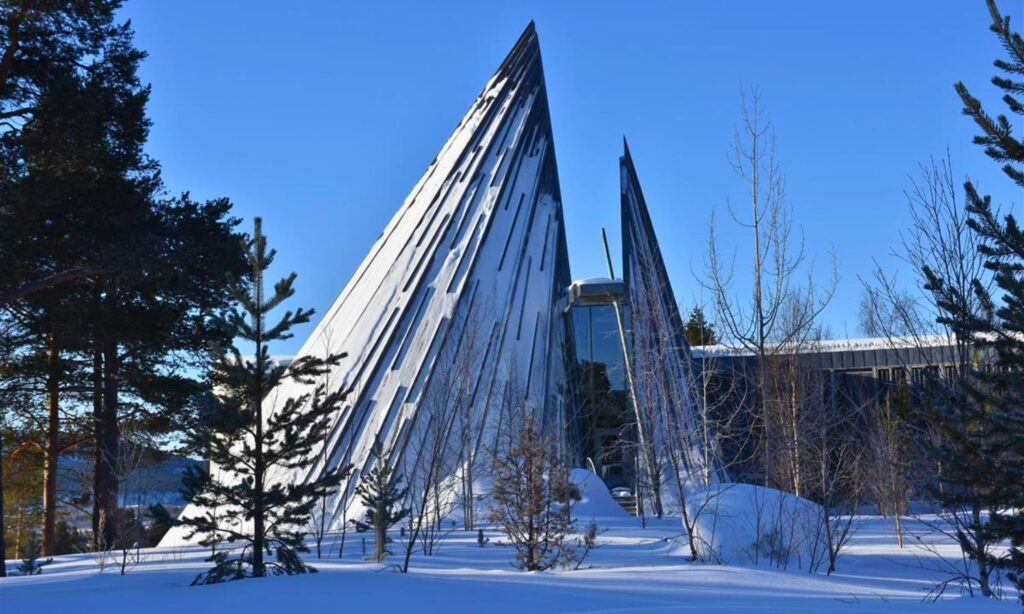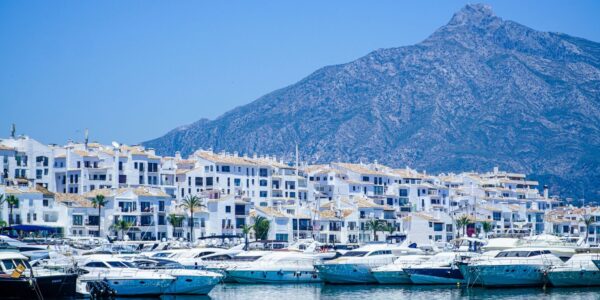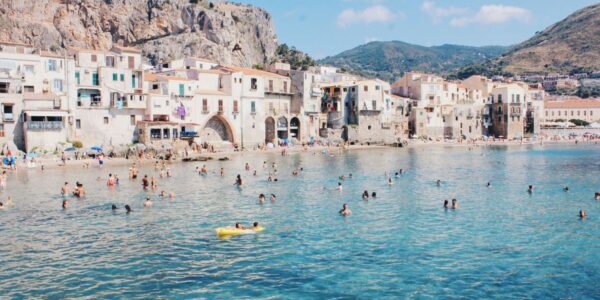Australia is set to make a monumental decision that will impact Aboriginal and Torres Strait Islander people for generations to come. Although the Voice to Parliament has been cast as a ‘radical’ idea, other nations have had something similar for over 30 years and, at present, the sky has yet to collapse upon them.
Karla Grant, host of Australia’s longest-running Indigenous affairs programme, Living Black, spent time in Norway where the Indigenous Sámi people have had their own Parliament since 1989. She’s exploring how the political body has been transformative for the country’s Indigenous people in the latest episode of SBS’s Dateline.
The Norwegian Sámi Parliament, which has parallel bodies in Sweden, Finland, and Russia, is an elected advisory body that speaks to the Norwegian government on matters relevant to the Sámi people. Although it’s called a ‘parliament’, it has no legislative power and is mainly a consultative body. It’s made up of 39 Sámi people representing seven constituencies elected every four years — something that sounds pretty familiar.
“It is similar,” Grant told The Latch over Zoom.
“Our Voice to Parliament would advise on matters affecting Indigenous Australians, so it’s very similar to the role of the Sámi Parliament”
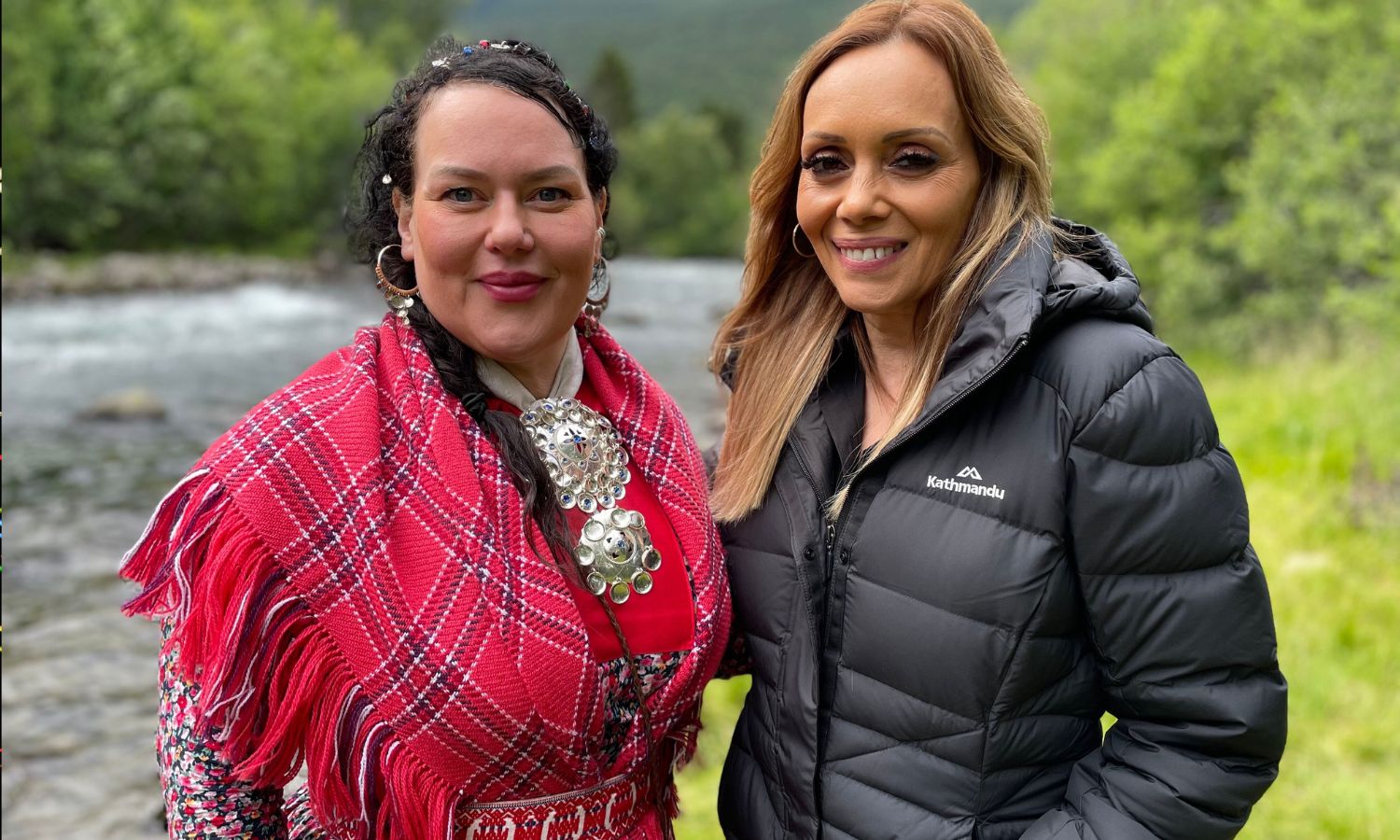
But the similarities don’t stop there. Sámi people in the Scandinavian regions have been around long before national borders were established. They lived primarily nomadic or semi-nomadic lives, moving with the seasons and living off the land. However, much like the Indigenous peoples of Australia, the Sámi have also suffered significant hardships at the hands of the ruling government.
From the 17th century until the mid-20th, the Sámi were subjected to a campaign of forced assimilation with the southerners once the economic potential of their homelands was understood. This involved the theft of their lands and the suppression of their language, religion, and culture. The Sámi Parliament, however, has been instrumental in righting some of these historical wrongs, Grant explains.
“It has seen positive gains for the Sámi people in terms of truth-telling, reconciliation, and the revitalisation of their language and culture as well,” Grant said.
“[It has enabled them to] speak their own minds and have their opinions heard. To have a seat at the table”.
The Sámi are the only recognised Indigenous people of Europe. There are between 80,000 and 100,000 of them across the continent’s most northern reaches. In 1964, the Norwegian Sámi Council was established to collectivise and channel the complaints and issues of the Sámi, allowing them to make representations to the Norwegian government.
The true test of this came when the government planned to create a hydroelectric dam that would flood the Sámi village of Máze. The Indigenous people put up fierce resistance over a number of years, culminating in one in ten Norwegian police being sent to Máze for counter-protest measures. The dam was eventually built in 1987, but it was considered something of a shameful chapter in the country’s history and highlighted the need to collaborate with and listen to the Sámi.
Following the dam and what later became known as the Alta controversy, the Norwegian Parliament passed legislation allowing for the creation of the Sámi Parliament. While the legal framework and protections it provides are one thing, Grant says that the impact it has had on the agency and personal value the Sámi feel is perhaps more valuable.
“People are now so proud to say that they are Sámi. They are proud to claim their Sámi heritage and many are speaking their language now. A lot of that is due to the work of the Sámi Parliament,” Grant said.
She speaks about meeting a former bodybuilder and security guard who, thanks to the work of the Parliament, was able to retrain as a kindergarten teacher in order to teach his own daughter and the rest of her class in their own Sámi language. She also talks about the “joyful” Riddu Riđđu music festival where Sámi people gather to wear traditional dress, speak traditional language, and celebrate their culture.
“You could see that they were filled with pride,” she said.
Despite the benefits brought about by the Parliament, it hasn’t been a silver bullet. The Sámi still experience discrimination on a daily basis in the nations that have been built up around them. Arguments over land rights and criticisms of the Parliament as divisive remain.
As an example, Grant recounts an ongoing case, featured in the Dateline episode, in which the construction of one of Europe’s biggest wind farms, on Sámi land, threatens their livelihoods.
“The reindeer herder we met is not able to take his reindeer up there to graze during the winter… He doesn’t know how long he’s going to be able to survive,” Grant said
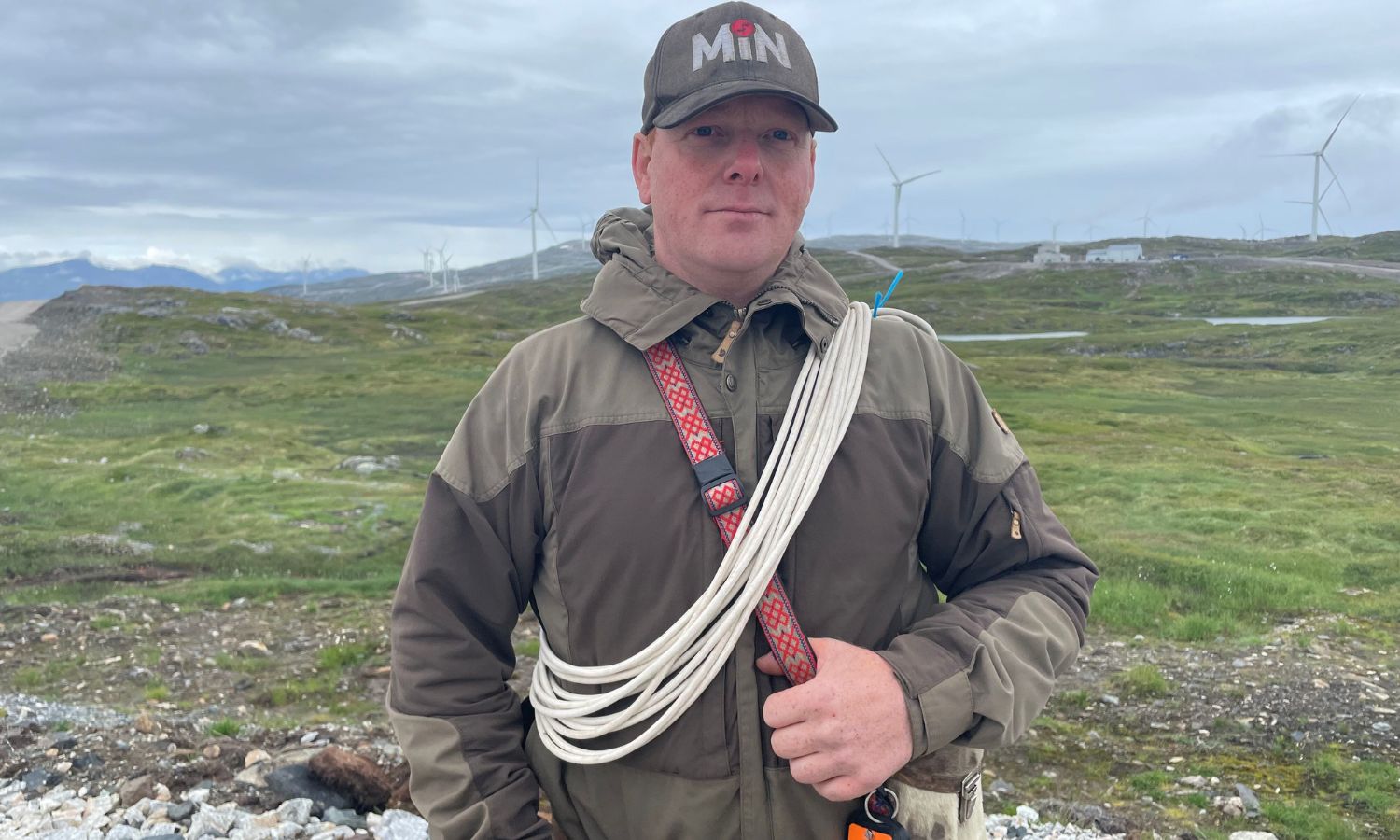
Currently, Sámi activist, Mihkkal Haetta, is camped outside the Norwegian Parliament to get the turbines removed after the Norwegian Supreme Court Ruled they were in violation of Sámi rights under international convention in 2021. These are the kinds of cases the Sámi Parliament is trying to negotiate with the government.
If we want details and examples in our own potential reconfiguration of Indigenous and non-Indigenous relations, Grant argues that the Sámi Parliament is the perfect place to turn to. Having seen the joy and the pride that such a body can bring, she argues the upcoming referendum is a question of national character.
“This is now a moment in time where the nation can come together and decide what sort of a nation do we want?,” she asked.
“Do we want to recognise Aboriginal and Torres Strait Islander people in the Constitution, as the first peoples of this nation, and to give them a voice in the matters that affect them?”
Polling for the Voice indicates that, unless there’s a major reversal in fortunes, the vote will return a negative result. Grant argues that while it’ll be difficult, either outcome won’t be the end of the conversation.
“There is also there’s going to be a lot of work to come after that vote. Nothing really comes easy, it comes through a lot of hard work.
But, you know, I think we can take a leaf out of the Sámi people’s book and just keep on fighting for the rights of our people”.
Watch Dateline episode ‘The Sámi Voice’ on Tuesday 19th September at 9.30pm on SBS and SBS On Demand and in October on NITV.
Related: Breaking Down the Official Yes and No Campaigns for the Voice to Parliament
Related: Ahead of the Curve: South Australia Enacts Its Own Indigenous Voice to Parliament
Read more stories from The Latch and subscribe to our email newsletter.


